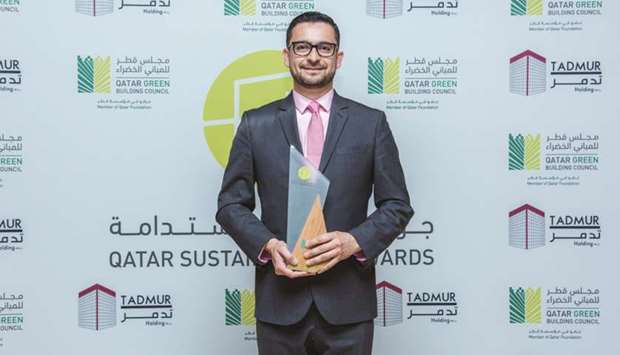As the world observes social distancing, the beaches, parks and markets are almost deserted. The picture can be gloomy but there is a silver lining. It has reduced plastic pollution and littering to a noticeable degree.
The times may be unusual but still people can do some usual and necessary things every day. The novel coronavirus outbreak has forced people to use more face masks and plastic gloves. If people are careful in disposing off these items, the impact can be far great.
Excessive use of plastic and littering in the pubic and open places have been resulting in heaps of garbage in oceans and at beaches. There are different volunteering groups in Doha that carry out beach cleanups and raise awareness against littering. Doha Environmental Action Group (DEAP) is one of the largest community groups that has done over 150 cleanup drives.
US national Jose Saucedo is an operations manager turned environmentalist. He holds a Master’s degree in Industrial and Systems Engineering from the Ohio State University and he is the director of DEAP, a volunteering group that is leading beach cleanup movement and fight against plastic pollution in Qatar.
“DEAP has organised over 162 beach cleanups and has mobilised almost 10,000 volunteers, and have collected 106 tons of trash from the beaches, sand dunes, and heritage sites of Qatar. In addition to that, in an effort to raise awareness and to inspire students to take action, I spend a lot of my time in schools doing many presentations and workshops,” Saucedo said.
Like other people the environmentalist stays at home and has put a stop at outdoor activities. “The outbreak forced us to stop all our cleanup activities and all of our school presentations, during what was on track to be the most active year for DEAP. So far I have spent a month staying at home, working from home, and helping my three kids with their schooling as their school continued online without any interruptions. We have been very responsible in observing social distance. It has not been easy, but we are doing our part. It is a small sacrifice for everyone’s sake in Qatar.”
When asked if he thinks staying at home can help reduce littering and plastic pollution, Saucedo said: “Yes, staying at home, and the closure of beaches and parks, as well as the prohibition of social gatherings, should result in an overall reduction of littering and plastic pollution. However, that could give us a false sense of accomplishment. We may not be littering as much, but not because we are doing a better job properly disposing our waste. Instead, it is simply because we just don’t have as many opportunities to litter. Proof of that is the incredible amount of gloves and face-masks that can be found littering parking lots, grocery stores and other public areas in Qatar.
“We still have a lot of work to do to ensure that people are doing the right thing and properly disposing their waste. I am hopeful that this health crisis will enable us to further increase awareness. It will help people understand that the time to take action is here and now. All of our actions have a direct impact on the environment and on all of us. Small changes make a huge difference.”
In response to the question that what steps people can take to reduce littering and avoid plastic as they stay at home, the volunteer said: “Start with the basics, put your trash in the bin. If you already do that, reduce your reliance on single use plastics to the extent that’s possible. Using a reusable water bottle is a great alternative vs buying multiple disposable water bottles every day. While staying at home people could always start recycling plastic and paper. You can do this for your apartment, villa, building, compound, office or neighbourhood. If your building, or office, or compound is not recycling, this could be a great project for you to lead during the next couple of weeks.
“We will make it through these difficult times. I have no doubt that people will continue to do what they can to #keepqatarclean. It takes all of us to make a difference. It is time to show Qatar and the environment some love.”

u201cStart with the basics, put your trash in the bin. If you already do that, reduce your reliance on single use plastics to the extent that’s possible. Using a reusable water bottle is a great alternative vs buying multiple disposable water bottles every day. While staying at home people could always start recycling plastic and paper. You can do this for your apartment, villa, building, compound, office or neighbourhood. If your building, or office, or compound is not recycling, this could be a great project for you to lead during the next couple of weeksu201d u2014 Jose Saucedo, environmentalist
